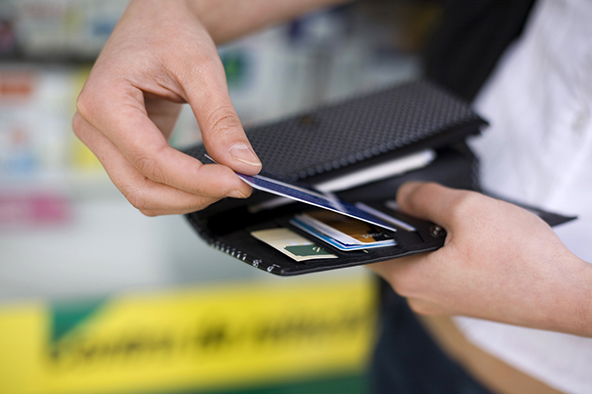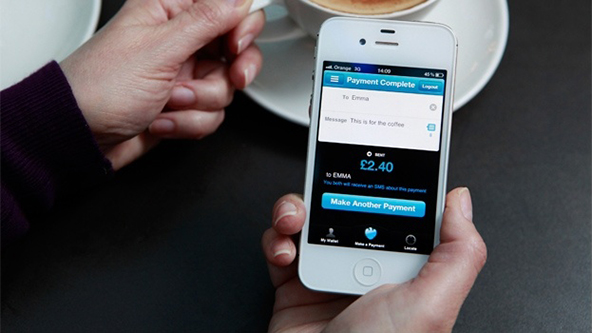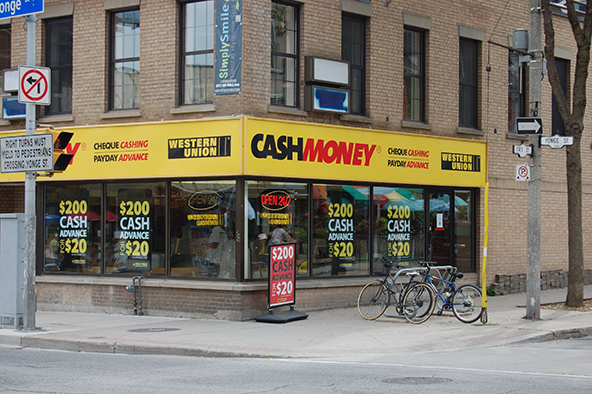Business Credit Card Traps to Avoid

This is a guest post by Erica Bell. Erica is a small business writer who focuses on topics such as credit card processing providers and small business checking accounts for Business.com.
Small business owners need to separate personal finances from their business. If things go downhill, you don’t want your own credit to take a hit. One report found that at the end of 2009, 83 percent of small businesses used credit cards and 64 percent used small business credit cards. While your business may be getting a great offer from a credit card company at a first glance, you could be looking at dud. When it comes to choosing a credit card for your own business, make sure you’re asking the right questions and aren’t being tricked. Here are three business credit card traps you’ll want to avoid.
Rates That Aren’t Guaranteed
Choosing a business credit card is very similar to choosing a personal card — you’ll want to read the fine print. Small-business credit cards aren’t protected by of the Credit Card Accountability Responsibility and Disclosure (CARD) Act of 2009. According to a PEW study, 80 percent of business cards allow credit card companies to change the terms of an account at any time, including raising rates on existing balances. Business credit card issuers can impose retroactive rate increases at any time and for any reason. Issuers may apply a penalty interest rate immediately and without notice for any violation, to last indefinitely on any balance.
Special Offers That Aren’t Special
While you may be offered a 0 percent APR for the first year, late payments can end the offer. Not only that, annual fees are often pricy for just having a business credit card.?áAny time you read the fine print, you’ll also locate that most cash-back gives are limited to a handful of expenditure categories or max out at a certain expenditure level. Many business cards have unrestricted penalty fees. In the same PEW study, 73 percent of business cards included a late fee and 67 percent of business cards included an over-limit fee. The Credit CARD Act makes it unlawful to charge a penalty that exceeds the cost of a violation for personal cards. If you choose a business credit card, make sure you are aware of the various fees that you could accrue. Penalty fees are virtually unrestricted.
Personal Liability Risks
Most business credit cards require a personal guarantee, which means you have to provide previous credit history in order to qualify. If you have poor credit, make sure you find a business credit card that doesn’t require personal information. If you have good credit, you’ll have a better chance of being approved for the card of your choice. This also means that any missed payments on your small business credit card could end up on your personal credit report, depending on how the issuer reports the card. Charges on your business card require the card holder to be personally liable, so make sure you’re managing the credit line well. However, after a few months or years of regular payments, a lender might be willing to remove the personal-liability aspect of your business credit card.
False Protections
When choosing whether or not to go with a personal or business credit card, keep in mind where you will be protected with each card. NFIB (National Federation of Independent Business) found that the difference between protections on consumer and business credit cards may have contributed to the decline in the number of small business loans. NFIB found the fraction of small business owners who use personal credit cards for business increased from 42 percent in 2009 to 49 percent in 2011, while the fraction that use business credit cards declined from 64 percent to 59 percent. If a company is offering you protection, make sure it’s in the contract or mandated by law. Remember that the Credit CARD Act doesn’t cover business credit card holders the way it does personal card holders.
If you chose to go with a business credit card over a personal one, make sure you spend some time reading the fine print. Understand the credit card’s terms of usage, costs and benefits before applying, and have a system in place to monitor and manage usage. You’ll want to pay off the full balance to avoid fees and penalties. Also keep in mind that business credit cards come with fewer consumer protections than personal credit cards as they aren’t covered by the CARD Act.
Image credit: Au10tix.wordpress.com.



I really see no difference between business credit cards and personal ones. As far as I can tell, they are freely interchangeable and there is no difference which type you would choose.
Business cards are practically the same as consumer cards. I can’t see a reason why they should be looked at as a separate type of cards.